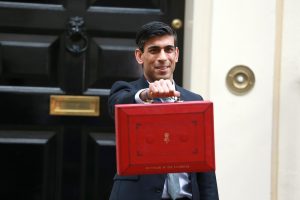On Friday, the new Chancellor Kwasi Kwarteng announced his “mini-budget”. Despite its name, the implications of the first economic plans laid out by Kwarteng were anything but mini – the policies packed a punch, but the key is understanding how different people will be affected.
With a cost-of-living crisis already leaving millions of households across the UK worried about their financial future, the government certainly needed to be bold to show they are ready to tackle these woes.
There were positives for people’s personal finances. The Chancellor announced a cut in the basic rate of income tax and a reversal of the 1.25% National Insurance hike introduced by the former chancellor Rishi Sunak in April. In the short term, this will benefit pension planners still in part-time or full-time employment, boosting the amount of pay they take home each month after tax.
Meanwhile, broader support was provided to businesses, with a scrapping of the proposed corporate tax rise welcomed by the private sector. The government no doubt hopes its “unashamedly pro-growth” economic agenda will translate, in part at least, to pay increases for employees.
Pension sector overlooked
As for people’s retirement finances directly, there was little in the way of pension policy mentioned in the mini-budget. This may be unsurprising as the UK’s new pension minister, Alex Burghart, was appointed just two days before, while Chloe Smith was only unveiled as the new Secretary of State for Work and Pensions in early September.
Regardless, it is crucial that Prime Minister Liz Truss and her new-look government address the issues upending retirement plans from the get-go.
One of the most pressing of these is bringing inflation under control. Until it drops notably, people’s savings are losing value in real terms. To that end, capping annual energy bills at £2,500 for the next two years will help.
Confirming the reinstating of the triple lock would have also provided some reassurance here. The triple lock would ensure the state pension increases by the highest of three possible figures: inflation, average earnings, or 2.5%. With inflation still soaring, the state pension, which pays £9,600 a year, is expected to increase by around 10% next April but is yet to be formally confirmed. Doing so last Friday would have inevitably restored some confidence amongst Britons approaching or at-retirement.
Long-term support needed
Overcoming any form of retirement crisis will also require long-term solutions and private sector involvement – significantly more could be done here.
For example, it is imperative that the new-look Government provides some reassurance on the long-awaited pension dashboards programme. The dashboard will give people easier, quicker access to their pension information, which is crucial in ensuring they can make prompt and informed decisions.
Vitally, the Government must make a commitment to collaborating with the pension industry to promote the value and improve access to independent financial advice. This will allow savers to create strong retirement plans that are tailored to their specific needs. And particularly given the economic volatility in the immediate aftermath of the “mini-Budget”, access to expert financial advice could provide Britons some much-needed reassurance regarding the value of their pension investments, and restore their confidence by helping them to develop a longer-term financial plan.
In November, the Chancellor will deliver his full Autumn budget; it will be a key date in the diary. Paying more attention to pension planners and what action can be taken to ensure people’s retirement plans are not disrupted will be important.
In the meantime, anyone who is unsure of how the “mini-budget” might affect their retirement finance strategy, or generally wary of how to manage their pension plans in the current climate, it can be highly beneficial to seek advice. An independent financial advisor can help talk through the options available to anyone in or nearing retirement, allowing them to make informed decisions.




